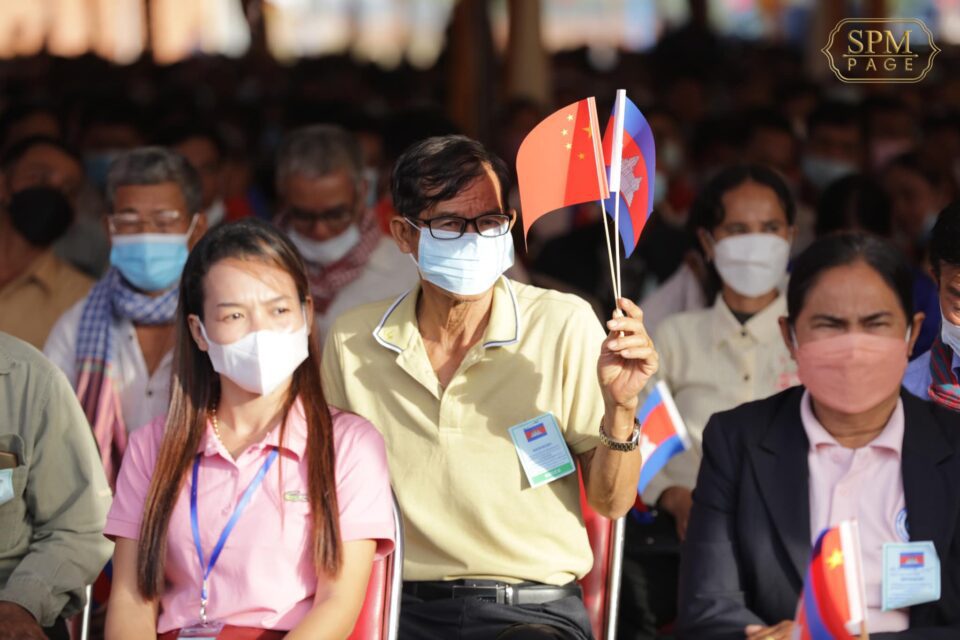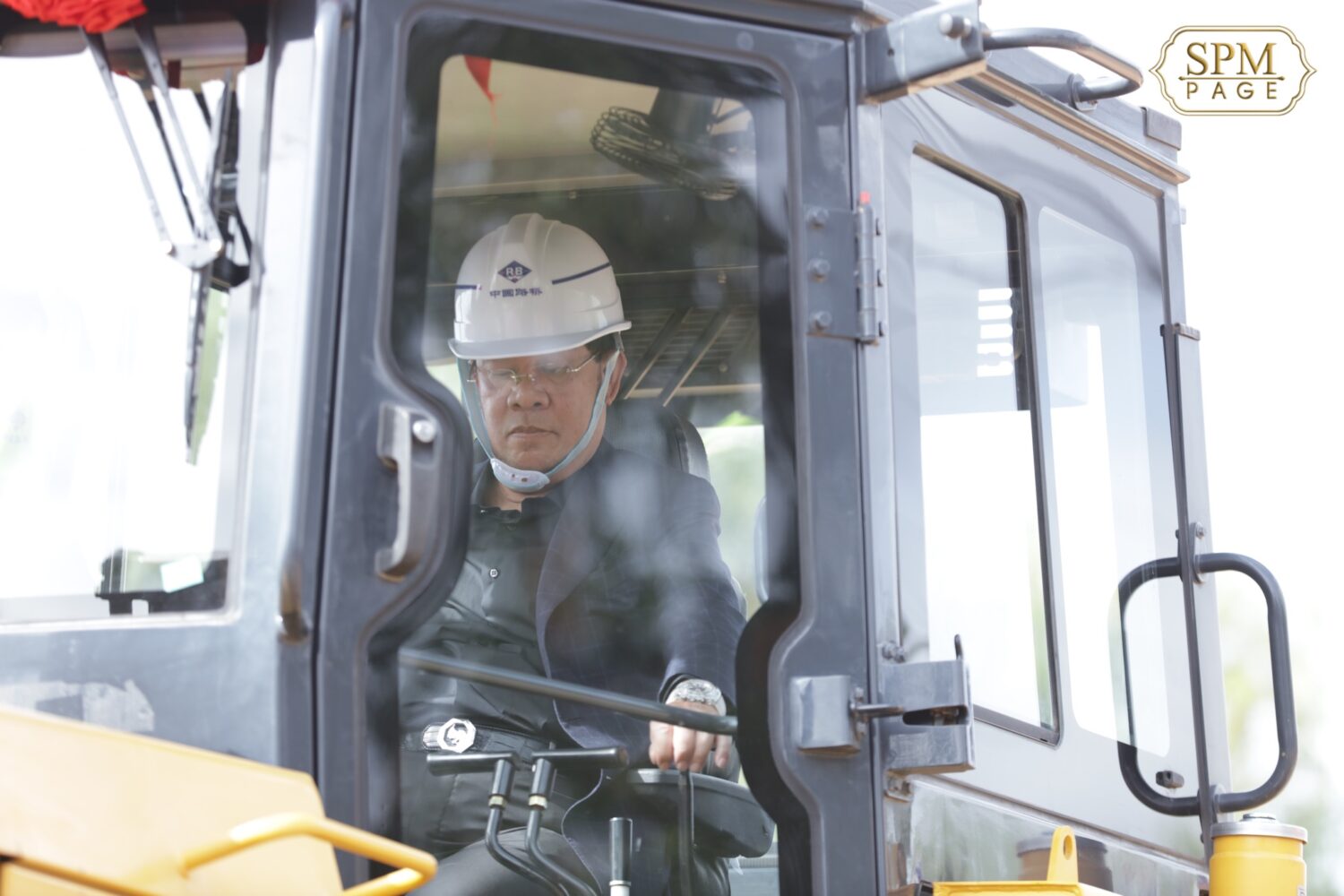Cambodia’s opposition parties must not criticize the ruling Cambodian People’s Party or question their election victories, said Prime Minister Hun Sen on Monday, even threatening legal action against any such dissent.
The prime minister was speaking at a road renovation event on Monday when he pivoted to warn opposition officials against criticizing his government and directed his lawyers to file lawsuits against them.
Hun Sen did not point to specific comments made by the opposition but said referring to votes being stolen was unacceptable and would be followed by legal action.
“There are only two options: One is to use legal means and the other is to use a stick. Which of these two do you prefer?”
“The Cambodian People’s Party cannot accept words like ‘a thief stealing ballots.’ Anyone who dares say this, we have to sue them.”
Hun Sen’s comments come months after the CPP sued Candlelight vice president Son Chhay for alleging there was “vote stealing” during the June commune election. Chhay has been ordered to pay the ruling party around $1 million after losing a defamation case, which is still under appeal.
Hun Sen then picked out Kong Korm, a recent inductee into Candlelight, who previously was a member of the CPP and served as foreign minister in the 1980s. Korm was also formerly a member of Sam Rainsy Party — before it was rechristened — and then a member of the dissolved Cambodia National Rescue Party.
The prime minister took umbrage with recent speeches made by Korm, where he allegedly criticized the CPP. Hun Sen questioned his allegiances because Korm had previously attacked opposition figure Sam Rainsy but was now critiquing the ruling party.
“You attack the CPP. Do you know that they feel hurt?” he said.

Hun Sen frequently engages in long-winded speeches where he criticizes and attacks opposition officials. In one recent speech, he announced that three generations of Sam Rainsy’s family were traitors, leading to a flow of letters published by local media from government officials, pro-CPP youth groups, the military and clergy supporting the denouncement.
Back to Korm, Hun Sen said the land Korm lives on was property of the Foreign Ministry and that he could file a court complaint to recover the property.
For years, the land, which is close to the Russian Embassy in Tonle Bassac commune, was the headquarters of the Sam Rainsy Party, later renamed the Candlelight Party.
In recent years, senior government officials have won cases against Rainsy, after which the courts confiscated Rainsy’s home in Chak Angry Leu commune — which was formerly also the CNRP headquarters — and sold it to pay any claims. Even in Chhay’s case, the court temporarily seized two of his properties in Phnom Penh and Siem Reap.
Hun Sen then reminded Kong Bora, one of Korm’s sons who works for the government, to stay loyal to the CPP.
While Bora defected to the CPP, his brother, Kong Monika, runs the Khmer Will Party which will contest the July election with Candlelight. A third son, Kong Saphea, is a former CNRP lawmaker living in the U.S., who was beaten outside the National Assembly by a violent mob linked to the prime minister’s bodyguard unit.
Korm and Candlelight vice president Thach Setha, who is in South Korea, have been criticizing the government and both have recently raised doubts over the conflicting narratives around January 7, or prampi makara. This was the day Vietnamese-backed forces overthrew the Khmer Rouge in 1979, which the CPP marks as a day of celebration. However, others, including the political opposition, view it as a day of invasion by Vietnam, which remained in the country for the next decade.
Korm, speaking on Monday, downplayed Hun Sen’s threats and said he would continue to campaign for Candlelight. He admitted that the land he lives on belonged to the Foreign Ministry but did not want to comment further.
“I do not think that it will reach that [level]. So I don’t want to talk about this thing. I think that he is just reminding me, reminding me,” Korm said.
Switching tracks, Hun Sen also complained about an unnamed ambassador who he said would consistently ask about their citizens in prison. He said the practice was making him consider if the Constitution should be amended to make it mandatory for politicians, the armed forces and civil servants to have only Cambodian citizenship.
He did not elaborate on this line of thinking.
This article was updated to correct that Kong Korm was part of the dissolved Cambodia National Rescue Party.













